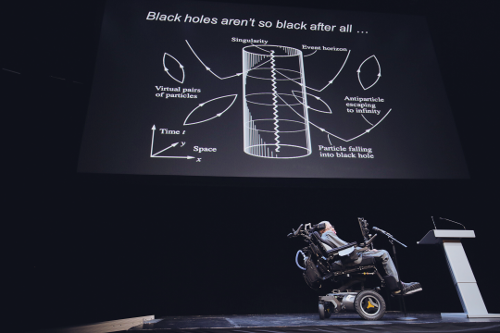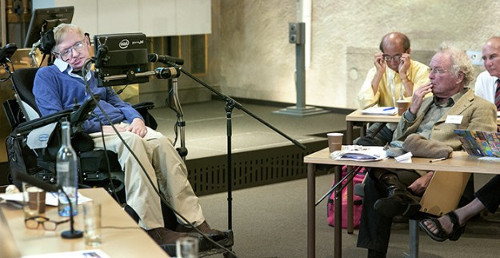Black holes don’t actually swallow and destroy physical information

Stephen Hawking revealed his latest idea about where he believes lost information winds up after being sucked into a black hole — in alternative universes. Photo: Adam af Ekenstam
At the recent Hawking Radiation Conference, Stephen Hawking’s new idea about what happens to information trapped in black holes dominated the discussion.
Black holes don’t actually swallow and destroy physical information, according to an idea Hawking proposed at the Hawking Radiation conference. Instead, they store it in a two-dimensional hologram, and then it gets severely jumbled up.
You might ask yourself why this distinction matters, but it addresses one of the most baffling questions facing a generation of physicists: What happens to the information about the physical state of things that are swallowed up by black holes? Is it destroyed, as our understanding of general relativity would predict?
If so, that would violate the laws of quantum mechanics. So, which theory of physics is right? Hawking’s answers appears to be they both are.

Stephen Hawking makes his presentation to a gathering of world-leading physicists at KTH Royal Institute of Technology. (Photo: Håkan Lindgren)
The day before the conference’s start, Hawking posited a controversial theory about the subject.
“The existence of alternative histories with black holes suggests this might be possible,” Hawking said. “The hole would need to be large and if it was rotating it might have a passage to another universe. But you couldn’t come back to our universe. So although I’m keen on space flight, I’m not going to try that.
“The message of this lecture is that black holes ain’t as black as they are painted. They are not the eternal prisons they were once thought. Things can get out of a black hole both on the outside and possibly come out in another universe.”
Hosted by KTH Royal Institute of Technology, the Hawking Radiation Conference was called by Laura Mersini-Houghton, a theoretical physicist at the University of North Carolina (UNC).
Stephen Hawking and some three dozen of the world’s most influential physicists will convene on KTH’s campus to seek a solution to a puzzle that has vexed science for years: whether singularities actually exist in black holes, and whether Hawking Radiation has any bearing on their existence.
For more about the Hawking Radiation Conference, visit the KTH Royal Institute of Technology page.
